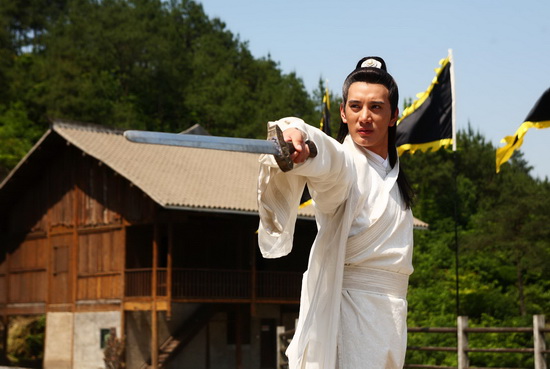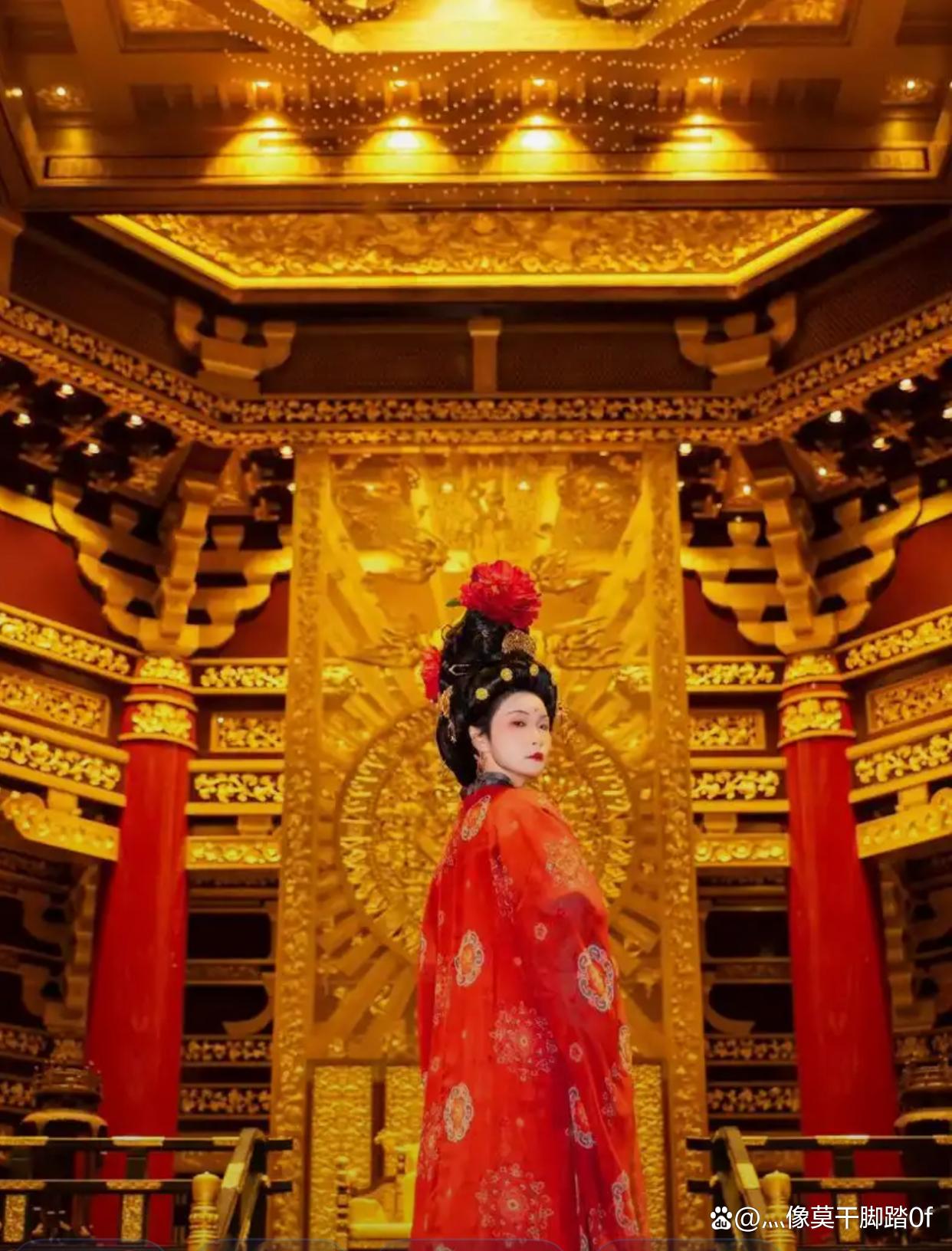Hello everyone, when it comes to Li Longji’s words, everyone must have heard of them.

The intensification of the conflict between Princess Taiping and Li Longji was actually inevitable. From the “Divine Dragon Coup” in which Wu Zetian was forced to retreat to the “Innate Coup” in which Li Longji and Princess Taiping competed for power, it can be said that it was the most chaotic period in the early Tang Dynasty. Before and after the restoration of Empress Wu Zetian and Emperor Tang Zhongzong Li Xian, due to the successive rise of the Wu and Wei clans, Li Longji and Princess Taiping, as members of the Li Tang royal family, naturally formed an alliance relationship. After the external threat was eliminated, the already strong two naturally became antagonistic relationships. After Li Longji succeeded to the throne, Princess Taiping actually became his biggest threat.
During the reign of Empress Wu Zetian, Princess Taiping began to participate in court politics and became the hope of the Li Tang royal family
As the youngest daughter of Emperor Gaozong of Tang, Li Zhi, and Empress Wu Zetian, Princess Taiping was deeply loved by both of them from a young age. After reaching adulthood, with the selection of Princess Taiping and the tacit approval of Emperor Gaozong of Tang, Li Zhi, she married Xue Shao, the legitimate nephew of Emperor Gaozong and the son of Princess Chengyang. During her first marriage, Princess Taiping was extremely obedient and self disciplined.

However, the good times did not last long. In the fourth year of the Chuigong reign (688 AD), Xue Shao’s older brother Xue Di was convicted for participating in the rebellion of Li Chong, a member of the Li Tang royal family. Although Xue Shao did not participate, due to Wu Zetian’s long-term opposition to the marriage between Princess Taiping and him, he was eventually punished with a hundred lashes and starved to death in prison. At this time, Princess Taiping’s young son was only one month old. Afterwards, in the first year of Zaichu (690 AD), Empress Wu Zetian married Princess Taiping to Wu Youji.
It was this marital upheaval that led to a significant change in Princess Taiping’s temperament. In order to control her own destiny, Princess Taiping began actively seizing power. She first intervened in court politics by offering male pets and gaining favor from Empress Wu Zetian. Due to the decline of the Li Tang royal family at that time, Princess Taiping became the only one capable of participating in court politics and quickly became the banner of the Li Tang royal family.
In the first year of the Shenlong era (705 AD), due to the political turmoil of Zhang Zongchang and Zhang Yi, Princess Taiping and Prime Minister Zhang Jianzhi launched a Shenlong coup, and the “Two Zhangs” and their wings were cut off. Wu Zetian was also forced to abdicate, and Tang Zhongzong was restored. And Princess Taiping was posthumously conferred the title of “Princess Taiping of Zhenguo” by Emperor Zhongzong of Tang, Li Xian, for her meritorious service in the execution of the two Zhangs, and began to move from behind the scenes to the forefront.
The alliance between the Webster Group and the Wu Group led to Li Longji and Princess Taiping becoming allies at one point
After the Shenlong Coup, the Wu family group rapidly declined due to the abdication and death of Empress Wu Zetian. Although Empress Wei and Princess Anle were ambitious and frequently intervened in court politics with the favor of Emperor Tang Zhongzong, they were still unable to pose a threat to the Taiping Princess group. During this period, the Taiping Princess was dominant in the court.
Due to their fear of Princess Taiping, the Wei family actively sought the support of their prime minister, Guan Wan’er, while also joining forces with the already weakened Wu family group, thus rapidly expanding their power. During this period, although both sides fought openly and secretly, they remained relatively peaceful on the surface until the first year of Jinglong (707 AD), when Crown Prince Li Chongjun launched the failed “Jinglong Coup”. Princess Anle and Zong Chuke took the opportunity to falsely accuse Princess Taiping and Prime Minister Li Dan, which intensified the conflict between the two sides.
While the struggle between Princess Taiping and the Wei family group gradually intensified (the Wu family group was completely eliminated in the “Jinglong Coup”), Li Longji was also secretly developing his power. Li Longji’s cleverness lies in the fact that he did not openly cultivate power among the courtiers, but instead extended his tentacles to the inconspicuous but crucial positions of the Wanqi (Emperor’s personal army) and the Yulin army.
In the fourth year of Jinglong (710 AD), Emperor Zhongzong of Tang, Li Xian, suddenly passed away (also known as being poisoned by Empress Wei and Princess Anle). Empress Wei then wanted to become the second Empress Wu Zetian, but before she could act, Li Longji, his aunt Princess Taiping, and Princess Taiping’s son Xue Chongjian quickly launched a coup, and the Wei family group was quickly eliminated, known as the “Tang Long Coup” in history.
After the Tang Long Coup, Prime Minister Li Dan succeeded to the throne as emperor, while Princess Taiping once again became a meritorious official. In addition, the Wu and Wei clans were successively eliminated, and Li Longji’s power was not in court. Princess Taiping’s influence in the court reached its peak. Even Emperor Li Dan had to frequently seek her opinions when making decisions about court affairs, and even sent prime ministers to her home to seek advice. Her sons Xue Chongxing, Xue Chongmin, and Xue Chongjian were all enfeoffed as kings.
Although Li Longji did not have a deep foundation in the court, due to his contributions in the Tang Long coup and his influence in the Wanqi and Yulin armies, he not only became the Crown Prince, but also was conferred the title of Prince Ping, concurrently serving as the Palace Supervisor, third rank in the Imperial Secretariat, and concurrently serving as the commander of the left and right Wanqi. It can be said that they have mastered an extremely important force, and their power rapidly grew after being crowned as the crown prince.
After the external threat was eliminated, the conflict between Li Longji and Princess Taiping inevitably erupted. Princess Taiping, who used to be the banner of the Li Tang royal family, was no longer appropriate to appear in the court at this time. But at this time, it is unlikely that Princess Taiping wants to withdraw from the political vortex. Even if she has this intention, how can her courtiers be willing to do so.
In order to consolidate her power and eliminate the threat of Li Longji, she spread the statement that “the Crown Prince is not the legitimate eldest son of the Emperor, so he should not be appointed as the Crown Prince” on the one hand, and deliberately stirred up the relationship between Li Longji and Li Chengqi, Li Shouli, Li Longfan, Li Longye and other Li Tang clans, intending to force Li Dan to abolish Li Longji’s position as Crown Prince.
However, what Princess Taiping did not expect was that Tang Ruizong Li Dan, who had experienced multiple coups, did not want to see any more struggles between the Li and Tang royal families, and remained wavering between Princess Taiping and Li Longji. And those courtiers who defected to him for the sake of Li Tang’s country back then, now they are no longer willing to interfere in court affairs for the sake of Li Tang’s country.
So, when Li Dan abdicated the throne to Li Longji, Princess Taiping became the biggest threat to Li Longji’s throne, and Li Longji became an urgent target for the Taiping Princess’s power to be eradicated. In the second year of Xiantian (713 AD), Princess Taiping attempted to launch a coup to depose Li Longji, but was quickly eliminated by Li Longji due to information leakage. Key members were killed or arrested one after another, and Princess Taiping was executed at home. Dozens of her sons and followers were executed, but only Xue Chongjian was spared due to repeated persuasion of Princess Taiping.


